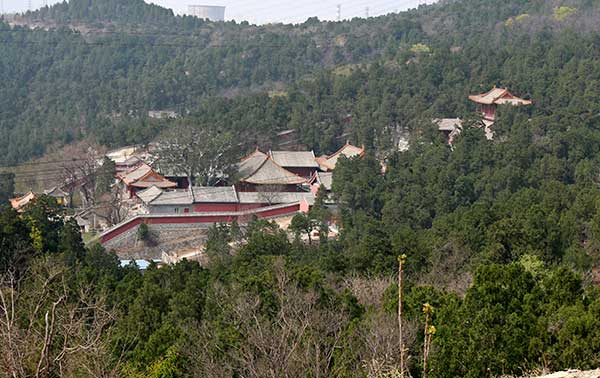 |
|
Fahai Temple is sitting on the slope of Cuiwei Mountain in Beijing's western suburb.[Photo provided to China Daily]
|
Lu saw the murals for the first time in 2011, before deciding that she "wanted to do something for them". Today her faith is tightly bound to these murals.
"There were two big earthquakes in Beijing, in 1679 and 1730. Fahai Temple was shaken, but the murals remained intact. It's true that time has done its worst. And at times in Fahai's history the lack of maintenance has resulted in roof leaks and cracks in the murals. Yet if you examine the paintings inch by inch, as I have, you will see that never, not even once, has a major crack or rain mark passed across the face of a Buddha."
Lu, 55, believes that the frescoes' ultimate greatness resides in their power to move.
"Step back and look into the eyes of the Bodhisattva, then walk slowly from her left side to right," she says, gesturing to me. So I do. And the goddess, looking down with her willow leaf-shaped eyes, never takes her silent gaze off me. Put another way, where I go, her eyes go.
"See what happens?" Lu muses. "She's with anyone who's with her."

